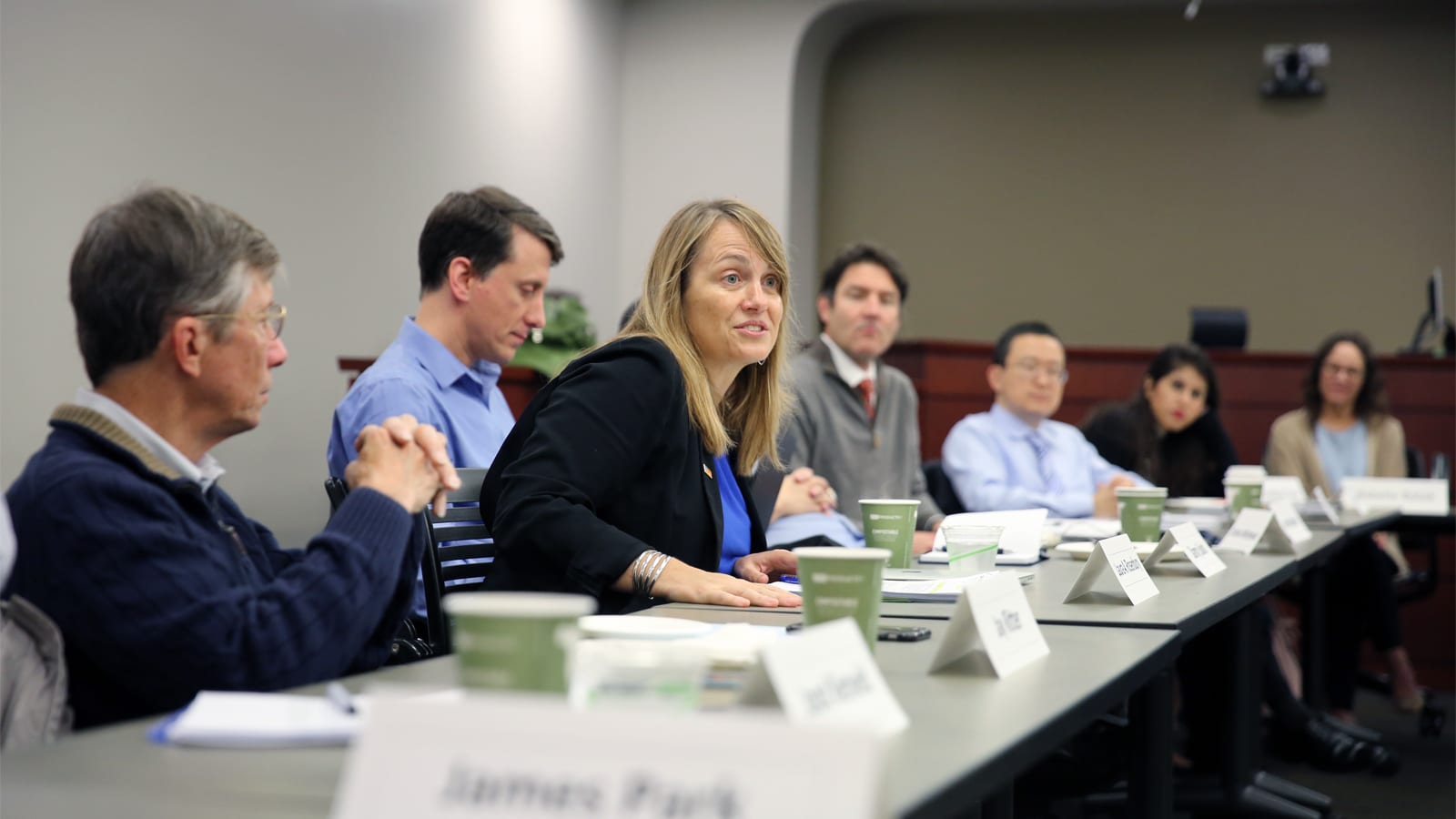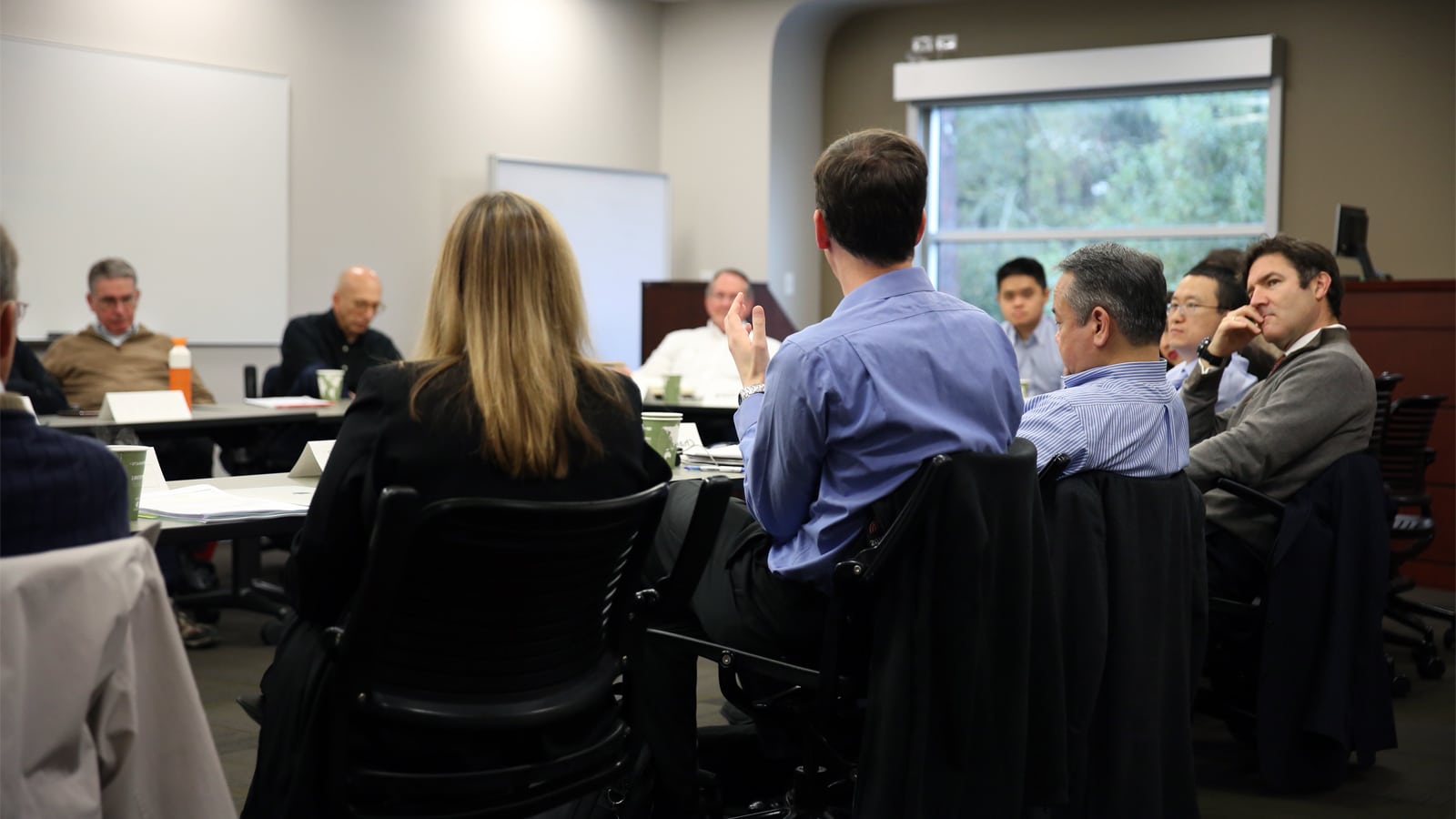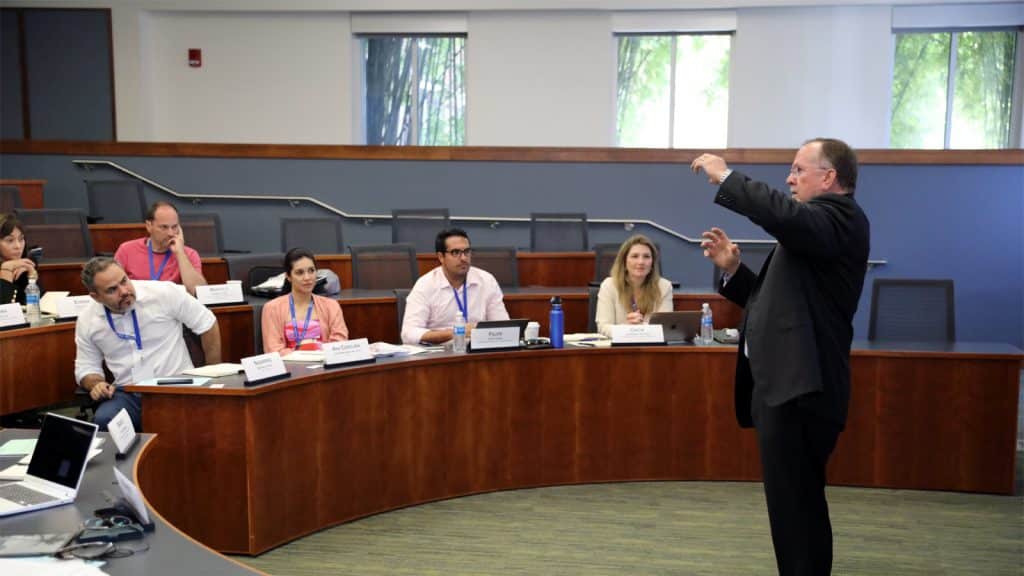
Digital Markets Initiative
Adapting business to the 21st century economy
Over the past two decades, digitization has dramatically changed how everyone does business. Websites are the new storefronts, social media is the place to engage consumers and data unlocks a treasure trove of insights.
But participating in the digital economy requires a broadband connection. And as Big Tech dominates, lawmakers question potential monopolies, propose antitrust legislation and enact various regulations.
The University of Florida’s Digital Markets Initiative dives deep into this dynamic, complex environment to understand who benefits, how to increase access, and the importance and impact of policy. We then take our findings to establish best practices intended to guide the professionals who work in or oversee the network, telecommunications and information industries.
Understand our objectives and how you can get involved.
What is the digital economy?
The digital economy describes our modern-day online commerce and manufacturing infrastructure — where individuals and businesses use data and internet-based technologies to make sales, launch products and communicate. The backbone of the Industry 4.0 environment, it encompasses the Internet of Things, artificial intelligence, fintech, e-commerce and autonomous vehicles.
18%
Of the U.S. GDP, doubling since 2020 and generating $4.9 trillion each year.
Interactive Advertising Bureau, “Measuring the Digital Economy,” 2025
92%
Of jobs require some degree of digital literacy.
National Skills Coalition/Federal Reserve Bank of Atlanta, “Closing the Digital Skill Divide”
22.3%
Of Americans in rural areas and 27.7% on Tribal lands lack access to high-speed internet, versus 1.5% in urban areas.
U.S. Department of Agriculture
Who we are and what we do
Managed by the Warrington College of Business’ Public Utility Research Center, the Digital Markets Initiative examines the rise of this virtual, data-based economy and its effects on business activity.
Our mission
When everyone could have a stake in the digital economy, informed guidance encourages a sense of order and opportunity for all. We study current conditions to develop recommendations for scholars, policymakers, companies, and government officials and determine the broader outcomes of regulations.
Student education
Our programming and resources equip Warrington students to excel in a digital-first world, whether they’re inclined toward entrepreneurship, aim to design the next fintech app, or will be handling customer and client data.
The guidance we provide
The digital economy of five years ago is practically unrecognizable today. Our research and thought leadership offer insight into its ongoing challenges and projected direction to accurately empower the professionals who lead business development and public policy efforts.
Partnerships
It’s not always easy to navigate the digital economy. Businesses and government organizations request our team’s research and educational programs to upskill their employees, make more competitive decisions and develop company- or industry-level best practices.

Digital economy research
Our research prepares organizations to adapt to digitization, assesses the role of high-speed internet in employment and entrepreneurship, and investigates whether laws intended to monitor data usage and the online space truly promote economic prosperity.
Research areas
We consider the big picture — the economic output and operational implications of digitization — before delving into market competition, the influence of social media, how to best support digital innovation, and the benefits of broadband expansion.
Grants and funding
We extend our Competitive Research Award Program to UF researchers whose work could deepen our collective understanding of digital markets and related policy. Priority is given to more interdisciplinary projects.
Student research
Warrington’s students aid our initiative by conducting studies on tech startups, data regulations, app stores, and the community and economic advantages of broadband subsidies.
Project Navigate
This academically based practical analysis explores the full effects of the European Union’s Digital Markets Act and Digital Services Act and how their precedence could unfold on the global stage.

Public engagement and outreach
Our educational events, podcasts, and think tank participation help to widely distribute up-to-date information on the digital economy to scholars, government and industry officials. Added to this, our researchers contribute to conversations on emerging technologies, the FCC’s evolving role, and ways to strengthen broadband utilities.
Collaboration and thought leadership
Our efforts to spread awareness of the digital economy extend to multiple channels and methods:
University collaborations
The Digital Markets Initiative assists UF and other institutions in connecting students with data analytics opportunities, helping them build essential 21st-century skills through education and projects.
Events
Our discussions, symposia, and conferences create a multi-industry roundtable for understanding, questioning, and improving the digital world — be it broadband pricing, tackling misinformation, or search neutrality and proposed legislation.
Government involvement
We collaborate with the state of Florida, as well as federal, state, and local governments, to determine the best approach for expanding and upgrading broadband networks. Additionally, we analyze the effectiveness of policies introduced to support these programs and regulate the telecommunications market.
Industry collaboration
The initiative’s partnership with the American Enterprise Institute produces papers and presentations that define a baseline for a business-friendly, community-empowering digital climate.
Previous presentations

Contact Us
Reach out for a quote or to partner with us:
Mark A. Jamison
Gerald L. Gunter Memorial Professor
Director, Public Utility Research Center
352-294-0466
Email Mark
Rebecca Beachy
Coordinator, Research Programs & Events
352-392-3655
Email Rebecca